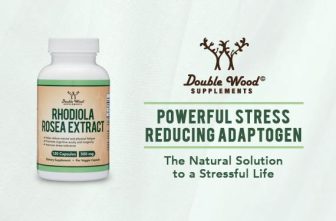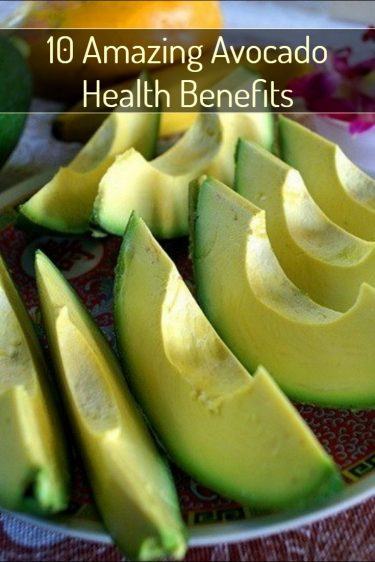Parsley Benefits for Heart Health, Cancer, Osteoporosis and Arthritis
Making parsley a part of your weekly diet can have many advantages in the journey to become healthy. Below I’m going to talk about why you should include it for a variety of benefits.
Parsley for a Healthy Heart
The various valuable antioxidants in both Italian and curly parsley, such as vitamin C, vitamin E, beta-carotene, quercetin and other flavonoids help prevent oxidation in your cardiovascular system by neutralizing free radicals, thus potentially reducing your risk of heart disease.
The polyacetylene compound falcarinol found in parsley is believed to have both anti-inflammatory and anti-platelet-aggregatory properties for preventing heart disease and stroke.
Additionally, studies show myristicin, a major volatile oil in fresh parsley, may increase the activity of the master antioxidant glutathione in your body. If it does, this could have a protective effect against a wide variety of inflammatory diseases, including cardiovascular disease.
The herb is also a good source of folate, which is involved in neutralizing homocysteine molecules in the blood stream that can damage blood vessels, eventually leading to heart attacks and strokes.
While difficult to prove conclusively (and there’s no incentive since you can’t patent a herb), there’s a strong case to be made for the many potential health benefits of parsley in preventing cardiovascular disease.
As healthy a food as parsley is, there are also a couple of important warnings to be aware of next in Parsley, Pregnancy and Other Precautions, including one for people being treated with blood thinning medications.
 Magnesium L Threonate (Magtein) | Highly Bioavailable Form for Healthy Sleep Habits and Improved Cognitive Function + Memory | 2,000 mg, 100 Capsules, Best Value
Magnesium L Threonate (Magtein) | Highly Bioavailable Form for Healthy Sleep Habits and Improved Cognitive Function + Memory | 2,000 mg, 100 Capsules, Best Value
Beneficial for Osteoporosis and Arthritis
Parsley is a good source of minerals such as calcium, magnesium, fluoride and boron which help protect against further bone thinning in the case of osteoporosis.
Low levels of vitamin K in the diet has also been linked to developing osteoporosis. Parsley is extremely rich in this important but hard to get nutrient.
Parsley is a potent source of antioxidants such as vitamin C and beta-carotene and contains a wide variety of potentially anti-inflammatory nutrients which may help reduce the symptoms of arthritis.
Eating the herb regularly is also said to speed up the excretion of uric acid, a substance that can increase joint stiffness and pain for arthritis sufferers.
A teaspoon of parsley made into a tea in a cup of boiling water is often recommended as a useful arthritis treatment. Fresh parsley is probably better, though dried organic flakes are also reported to be effective for many people.
 Rhodiola Fights Fatigue, Enhances Mental Performance & Helps You Power Through Stress With Sustained Energy | Third Party Tested, Pharmaceutical Grade, Made in the USA, Free Delivery
Rhodiola Fights Fatigue, Enhances Mental Performance & Helps You Power Through Stress With Sustained Energy | Third Party Tested, Pharmaceutical Grade, Made in the USA, Free Delivery
Anti-Cancer Parsley
Parsley has a variety of nutrients to protect you against developing cancer. It is rich in antioxidants like vitamin C, beta-carotene and quercetin, but also contains less well known flavonoids like apigenin, luteolin and chrysoeriol.
Apigenin research studies have associated it with a decreased risk of pancreatic cancer, leukemia, cervical and ovarian cancer. Apigenin has also been shown to interfere with cancer cell proliferation, exhibiting strong anti-tumor properties.
The flavonoid luteolin found in parsley has a chemopreventive (anti-cancer) action by reducing the effects of carcinogenic compounds called heterocyclic amines and polycyclic aromatic hydrocarbons found in foods like cooked meat.
Research has also shown luteolin to have an anti-proliferative effect against hormonal cancers such as prostate, thyroid and breast cancer.
A third flavonoid, chrysoeriol, has also been studied for its potential anti-cancer benefits, particularly with regards to preventing breast cancer.
Parsley benefits also includes high levels of polyacetylenes such as falcarinol, which is believed to inhibit the proliferation of cancer cells and be strongly cytotoxic (cancer killing).
Chlorophyll in this green superfood can also help deactivate harmful carcinogens that promote tumours. Additionally, vitamin K, one of the real standouts in parsley nutrition, may also have a role to play in cancer prevention.
Certain volatile oils in the herb are considered chemopreventive. Myristicin in particular, which has been found to be a high percentage of the volatile oil in parsley, has been studied for its ability to increase the activity of our body’s major detoxifier glutathione.
Patients with cancer and many other serious diseases are usually found to have reduced glutathione levels. Glutathione is our bodies premiere antioxidant. If the myristicin found in the herb can actually increase its action, parsley benefits may apply not just for preventing cancer, but for a wide variety of other diseases as well.
As an Amazon Associate I may earn from qualifying purchases at no cost to the consumer | Information presented here is for educational purposes only. The content is not intended to be a substitute for professional advice. Statements made have not been evaluated by the FDA and are not intended to diagnose, cure, treat or prevent any condition. Consult your GP before making dietary changes or taking supplements.





